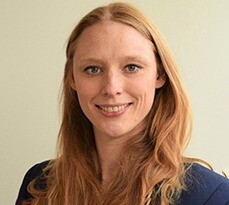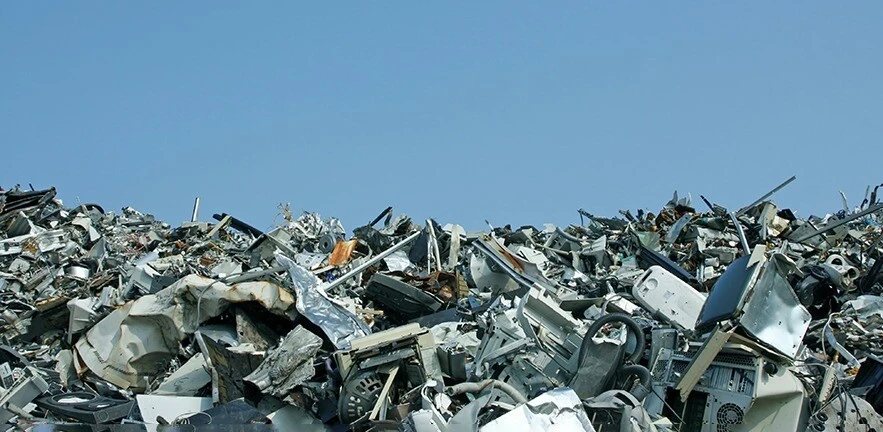Cambridge Judge Business School PhD students are a vibrant community, excelling in research but also determined to make a difference in the world. Every year, their research projects bring them in close contact with non-academic organisations and their engagement helps their work go the extra mile, generating not only sound theoretical research but insights that can benefit society.

Sytske Wijnsma, fourth year PhD student at Cambridge Judge Business School, is a perfect example of what PhD students can achieve when they engage with non-academic organisations as a way to develop novel and original research. For the past three years, she has collaborated with Europol, the European Law Enforcement Agency, to reduce illegal electronic waste (e-waste) disposal. We asked her to share her experience and how engagement and impact can happen already in the earliest stages of an academic career.
Why did you decide to engage with Europol?
When I started my PhD, I wanted to use my research to help solve pressing sustainability issues. This meant choosing an impactful topic and answering a research question that was relevant for stakeholders. I attended some non-academic conferences and heard the talk of an employee of Europol about e-waste, which immediately attracted my attention. I reached out to them and was invited to visit the environmental crime unit at their headquarters. We discussed at length several key issues the unit was dealing with and we decided to collaborate on a research project.
What was the collaboration about?
Several estimates suggest that only 20 per cent of e-waste is formally recycled, which is even more problematic knowing that it is the fastest growing waste stream. There are strict rules in the European Union to make sure the precious metals in e-waste are extracted without the toxic substances harming public health or the environment. While these regulations are necessary, they impose large costs on firms, and it can become more lucrative to export waste to developing countries where standards are lower, even though this is a criminal offense. Together with Europol, I decided to explore how we can design e-waste regulations that avoid these outcomes and encourage proper recycling.
What is the added value of a research collaboration?
The game theoretic model I developed provided a holistic understanding of firm incentives and of waste flows. This can be very helpful for agencies like Europol since they tend to analyse violations on a case-by-case basis due to the little data available and the scale of the operations. A modelling framework complements this approach by identifying commonalities across cases and surfacing overarching trends. In return, my research benefited from the incredibly valuable input of Europol agents. They shared the challenges of enforcement agencies and where the main compliance issues occurred. This helped me identify the firms that have the most impact on waste flow and prioritise those areas where research could make a large difference. Additionally, they provided an arsenal of cases and examples that I could use to illustrate the problem. I was deeply impressed by their profound expertise and in-depth knowledge of criminal activities, without which, I would not have been able to build the model or derive the insights that I did.
What were the findings of the project?
Certain intuitive policies were revealed to increase violations or negatively affect profits of compliant firms, while other less obvious alternatives led to better results. For instance, Extended Producer Responsibility (EPR) regulations hold producers responsible for contracting compliant recyclers to manage their end-of-life products. In practice however, this is difficult to assess beforehand, exposing producers to compliance and reputation risks. I presented the preliminary findings at the Europol headquarters and we hope the final results will help policy makers better understand firm’s reactions to enforcement and policy measures.
Any advice for PhD students wanting to collaborate with non-academic organisations?
My first advice is to not underestimate the importance of non-academic events. They are paramount to know what challenges organisations are facing and to make valuable connections. The second advice is to reach out to relevant experts and practitioners. In my experience, you almost always receive a positive reply by stressing you are interested in helping them solve a problem. This also ties into my last point: impactful research is research that is relevant and can be used by your collaborators. Listen carefully to what they identify as urgent issues, keep them updated on your progress, and present actionable findings.
For future impact, Sytske and her co-authors are now looking at applying their insights to the waste market in the United States. The US has very few waste regulations, but as the second largest e-waste producer in the world, the government is looking into effective policies.


